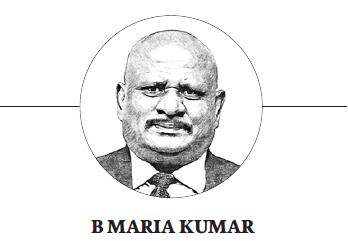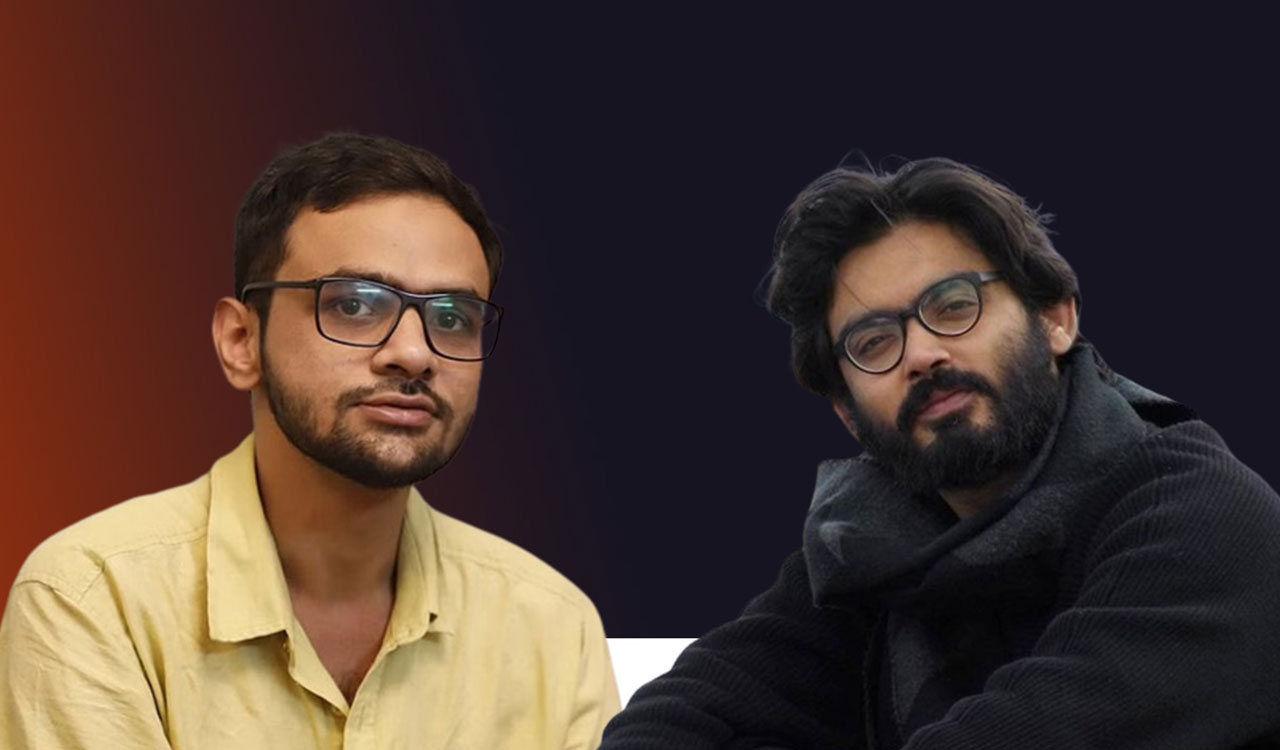Opinion: Good, not bad and ugly of longevity
Merit of longevity depends on the spirit of the person and the prevailing conditions

By B Maria Kumar
More than six years past superannuation, I often wonder what lies ahead in life. With no professional responsibilities, a retiree like me can discover, invent and innovate new ways to stay active.
As we age, realisation dawns that nothing is more important than health. Thus, older individuals tend to explore and try to adopt healthier lifestyles to the best of their ability. As senior citizens become accustomed to watching media and going through newsfeed for passing (killing) time, they frequently come across numerous reports on both offline and online platforms about tips and strategies to achieve longevity. It seems that almost all elderly folks yearn to follow Warren Buffett’s ambitious plan to become the oldest living person in the world. Modern research is abundant with findings on how to attain a long life, with the potential to reach nonagenarian, centenarian or even super-centenarian status. Some companies are investing billions in experiments and services to help people prolong their lives.
Renowned Israeli historian Yuval Noah Harari believes that life-extending therapies are possible through scientific advances, especially in biotechnology. He asserts that due to the costly procedures, wealthy individuals will have more access to these treatments, such as expensive organ replacements and other medical interventions, further exacerbating inequalities across the world, since the poor will be unable to afford these facilities.
Indian-born British-American Nobel Prize-winning scientist Venki Ramakrishnan opines that human ageing is not inevitable. He suggests that it may be feasible to circumvent natural lifespan limits by altering our biology. Noted futurist Raymond Kurzweil’s theory reminds us of the biblical Methuselah, who lived for almost a thousand years. Kurzweil believes that nanorobots, by blending biotechnology with artificial intelligence (AI) and rectifying the errors in cell production, could stop ageing and enable us to live for thousands of years.
A recent study from Boston University’s Chobanian and Avedisian School of Medicine found that the overall effort older people put into coping with stress is crucial for longevity. SciTech Daily, in its January 2024 report, reviewed research conducted by Corina Amor Vegas and colleagues at Cold Spring Harbor Laboratory, indicating that genetic modification of T-cells can eliminate senescent cells, unlocking a new fountain of youth akin to F Scott Fitzgerald’s fictional character Benjamin Button, who aged in reverse. Additionally, last December, a team of Chinese scientists claimed in ‘The Sun’ that an anti-ageing protocol involving hydrogen atoms could mark a significant step towards human immortality.
Despite extensive scientific endeavours to develop methods for preventing infections, accidents and the wear and tear of ageing processes — considered the prime triad of life’s greatest threats — and to increase lifespan, there are dissenting voices that argue against significantly extending life. One prominent figure among these ideologues is Ezekiel Emanuel, an American oncologist, who has publicly stated his intention to stop seeking healthcare services after the age of 75. Emanuel’s basic proposition is that life beyond a certain point loses its quality due to various factors. Now 66, he has confessed that he will not pursue antibiotics or medical procedures once he reaches 75 because he believes that at that age, the body and mind will be unable to maintain or enjoy the same level of joie de vivre as before. In his view, efforts to extend lifetime through clinical measures simply don’t seem worthwhile if the charm and utility of life cannot be preserved.
Having explored different perspectives on longevity, it becomes clear that there is no absolute judgement on whether a long lifespan is good or bad. The merit of longevity depends on the spirit of the person and the prevailing conditions, which determine how well a long or short lifespan matters. An age-old dictum suggests that it is more important to add life to years than years to life. This saying finds mythological validation in the story of the Greek goddess Thetis, who granted her son Achilles, the hero of Homer’s ‘Iliad’, a life that was glorious rather than long. On the other hand, many long-living older adults have greatly advanced societal progress. Their vast experience provides them with a richer pool of wisdom, empowering them to do good, guide younger generations properly and help them become humane.
Just as dualities like light and darkness, hot and cold or brief and long occur side by side, we see both good and bad too coexisting in the world we live in. Between these extremes of inherent natures, the people we encounter daily have personalities in varying degrees. Legends, historical facts and current events bear witness to a wide range of individuals, instances and situations. While the immortal Markandeya from the ancient Puranas is known for his benevolence and sharing his divine knowledge and powers with humanity, history also recounts the tale of the 30-plus-year-old Alexander, who caused insurmountable tragedy by waging wars across multiple ancient kingdoms. Furthermore, the ageless Endymion of Greek mythology, in his eternal sleep, symbolises countless youngsters who are concerned only with themselves. If the deathless Loki, the Norse god, is a trickster and villain, we have contemporary young icons such as Nobel laureate Malala Yousafzai and climate activist Greta Thunberg, who have dedicated their lives at a tender age to bettering the human condition. Therefore, it can ultimately be ascertained that life, regardless of it being lengthy or short, holds no value unless it serves a purpose for the benefit of fellow humans.
By analysing these observations holistically, we can categorise individuals into three general groups. The first group comprises those who, whether they live long or not, cause the least possible unavoidable inconvenience and do the most possible good for others. The second category includes those who, whether they live long or not, cause the least possible unavoidable inconvenience to others and live for themselves. The third group consists of people who, whether they live long or not, cause harm to others. This broader understanding of these individual tendencies can help us draw lessons as well as inspirations, motivating us to enhance the collective wellbeing of humanity.

(The author, a retired IPS officer, is a winner of National Rajbhasha Gaurav Award for 2022-23)
Related News
-
TG EAPCET 2028 to follow revamped Intermediate syllabus
3 mins ago -
Grand Mufti dismisses Muslim security concerns after meeting PM Modi
11 mins ago -
Telangana High Court grants conditional bail to movie piracy accused ‘Ibomma’ Ravi
16 mins ago -
Telangana HC directs govt to provide details on pending tuition fee reimbursement
19 mins ago -
Telangana HC halts Ibrahimpatnam Municipal Council election process
25 mins ago -
Telangana government cuts fees for private engineering colleges
29 mins ago -
BRS leaders approach SEC seeking action against Congress atrocities in civic polls
31 mins ago -
Girls to get location benefit in Telangana EAPCET centre allotments
40 mins ago




